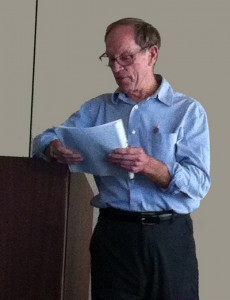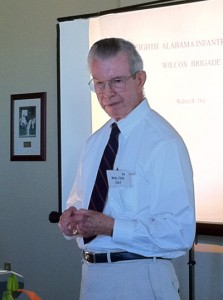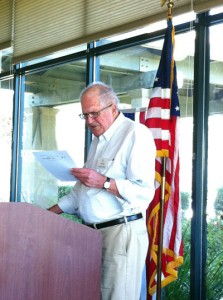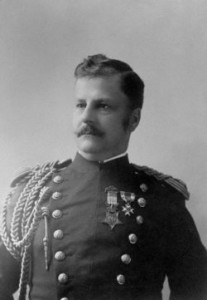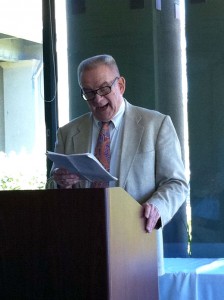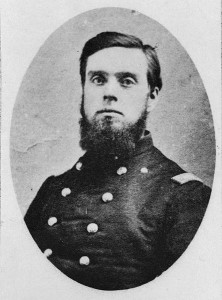Bob Hubbs on “How Lincoln Won the War Without the Help of His Generals”
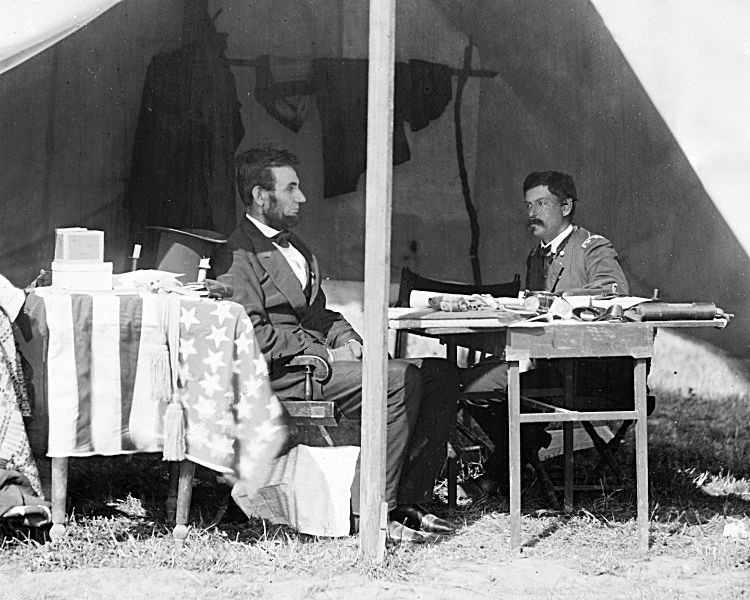
Lincoln and McClellan at Antietam
Bob’s presentation focused on Lincoln’s relationship with his generals in high command during the Civil War. Among the major points of Bob’s presentation were:
- A review of Lincoln for what he really was relative to the manner in which he selected, communicated with, and demonstrated confidence in his generals.
- Lincoln as a military strategist as well as a shrewd politician.
- Identifying the generals Lincoln eventually replaced.
- Lincoln’s masterful use of the telegraph in monitoring both the crucial Civil War battles as well as the progress and effectiveness of his generals.
- Lincoln’s “photographic memory” in recalling the details of crucial battles as well as the “pitfalls”, shortcomings, and inept battlefield decisions of his generals.
- Lincoln’s search for “just the right general” (or combination of generals) to carry out his aggressive strategy in the pursuit and defeat of Robert E. Lee and the Army of Northern Virginia.

